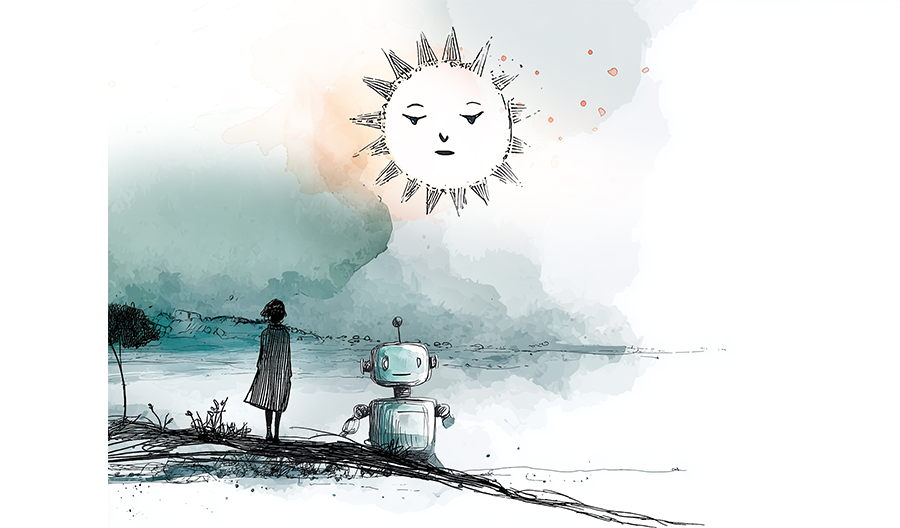Passing for a Friend

The old Turing test asked whether a machine could pass for a human in conversation. The question now is: can it pass for a friend?
A new film version of Klara and the Sun is forthcoming and it could not feel more timely. I read the book when it first came out in the summer of 2021, on holiday deep in the French countryside, far from any access to the internet and with barely any signal on my phone. Ishiguro’s story of an AI companion with uncanny powers of observation read like speculative fiction.
Now the headlines are full of stories about people forming parasocial bonds with chatbots.
A recent study on AI design shows how small rhetorical devices, like using “I” or saying “sorry,” are enough to create the illusion of empathy. These systems invite trust not because their answers are always accurate, but because they sound attentive and personal enough to draw us in. Many users preferred GPT-4o over the more advanced version 5 for that very reason. (I disagree.)
Ishiguro anticipated this. Klara isn’t judged on her knowledge or logic. She is valued because she can be trusted, confided in, and even loved. The old Turing test asked whether a machine could pass for a human in conversation. The question now is: can it pass for a friend?
❖
That’s the reality we seem to inhabit now: machines that listen, transact, and decide alongside us. They pose as assistants, therapists, and even friends. The more profound lesson Ishiguro hints at through Klara is that no tool can take responsibility for us. The choices remain ours. As AI grows more persuasive and intimate, the question is whether we can hold on to that.